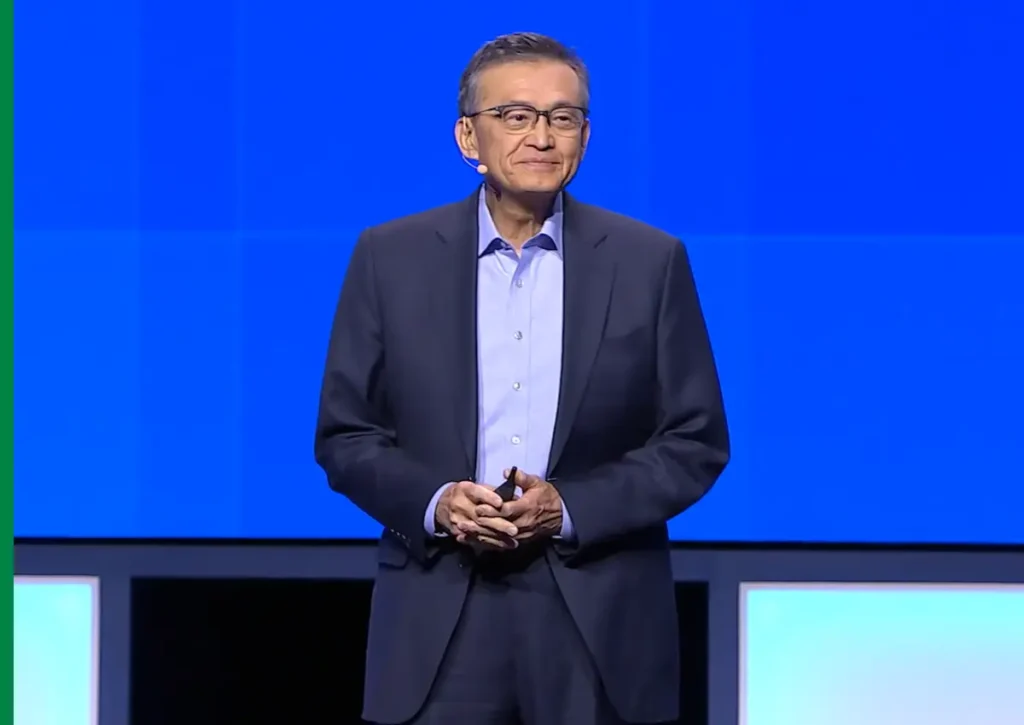Lip-Bu Tan is one of the most recognized participants in the world semiconductor market and at the moment is the Chief Executive Officer of Corporation Intel since March 2025. Tan was born on November 12, 1959, in Muar, Johor, Malaysia; he is a visionary who has had a remarkable career history spanning venture capital, corporate leadership and technological innovation, which has dramatically changed the face of the semiconductor domain.
The life story of a small Malaysian town boy who rose through the ranks to become the Chief executive of one of the most strategically coveted technology companies in America is not only a story of resurgence but also one of audacity of vision and entrepreneurial insight.

His multicultural background in Southeast Asia constitutes the roots of the success story of Tan. His father was the chief editor of the Nanyang Siang Pau, a Malaysian Chinese-language daily newspaper, whereas his mother was a This intellectual setting enhanced Tan in early life to value and appreciate education and world views, which were very valuable in his international commercial career.
Academic excellence was promoted in his family, reflected in his choice as he furthered his studies in nearby Singapore, where he obtained a Bachelor of Science degree in physics at Nanyang University, showing a precocious tendency towards technical studies, which would characterize his professional career.
However, Tan took a major step in his educational career as he transferred to the United States, where he advanced his studies at the Massachusetts Institute of Technology, where he earned a Master of Science degree in nuclear engineering. But in 1979, the nuclear incident, which was called the Three Mile Island disaster, changed the situation within the industry drastically, making Tan think about a change in his chosen profession.
This disappointment arose as an opportunity through which he would shift to business-related studies and thus pursue a Master of Business Administration at the University of San Francisco. Such a blend of business and technical expertise in engineering would turn out to be the ideal ground on which he would base his future achievements in the technology field.
The early phase of Tan’s professional career included management positions at EDS Nuclear and ECHO Energy, where he gained valuable experience in engineering project management and operational leadership. These roles provided him with firsthand understanding of how technical innovation translates into commercial success, knowledge that would prove crucial when he transitioned into venture capital.
His partnership with the Walden USA investment fund marked his entry into the world of technology investing, setting the stage for his eventual founding of Walden International in 1987.
The Walden International Success Story
Walden International represents perhaps Tan’s most significant entrepreneurial achievement, embodying his vision of bridging Asian technology innovation with global capital markets. He named the firm after Henry David Thoreau’s philosophical work “Walden,” reflecting his commitment to contrarian thinking rather than following conventional trends. This philosophy proved remarkably prescient, as Tan’s willingness to invest in Asian technology startups during periods when Western investors remained skeptical paid enormous dividends.
Under Tan’s leadership, Walden International grew from a modest $20 million fund at its founding to managing over $2 billion by 2001, earning him recognition from Forbes as “the pioneer of Asian VC.” His investment strategy focused heavily on semiconductor and high-technology companies across Asia, particularly in China, Taiwan, Singapore, and other emerging technology hubs.
Between 2017 and 2020, Walden International made at least 25 investments in Chinese semiconductor companies, representing more than 40% of all Chinese semiconductor deals involving U.S. venture investors during that period.
This aggressive investment approach in Chinese technology firms has generated both tremendous financial returns and significant political controversy. Through Walden International, Tan invested in hundreds of Chinese technology companies, with reported investments totaling at least $200 million between March 2012 and December 2024.
While these investments demonstrated remarkable business acumen and helped establish numerous successful technology companies, they have also attracted scrutiny from U.S. lawmakers concerned about national security implications and potential conflicts of interest.
Transforming Cadence Design Systems
The initial stage of the transformation of Cadence Design Systems into one of the most successful corporate turnarounds in the history of the semiconductor industry is the appointment of Tan to Cadence Design Systems board of directors in February of 2004.
By the time he took up the position of interim co-CEO in October 2008, the company Cadence was experiencing challenges to balance its market share in a fast-changing chip design software industry after Michael Fister resigned due to the company being unable to balance the competitive dynamics in the industry.
His appointment as the president and CEO of the company, effective January, 2009, by the board was to turn out to be of a revolutionary change in the future of the company.
The market growth and increase in market share were achieved during the tenure of Tan as the CEO of Cadence between 2009 and 2021. The stock price of the company rose astronomically by 3,200 percent and the net worth of the company rose to 1.3 billion as at 2012 with a growth contribution of 440 million in a single year.
Such an outstanding performance was boosted by the strategic foresight of Tan on transforming Cadence into an indispensable company to the technology-producing companies across the world, which has helped it win key clients such as Apple and other tech giants.
Strategic acquisitions played a crucial role in Tan’s expansion strategy, with the 2013 purchase of private chip design company Tensilica for $380 million representing a particularly significant milestone. This acquisition significantly enhanced Cadence’s intellectual property portfolio and strengthened its competitive position in the rapidly growing system-on-chip design market.
The company also expanded its global footprint during this period, notably growing its Shanghai office in 2012 to better serve Asian technology clients.
The receipt of the Robert N. Noyce Award by the Semiconductor Industry Association in August 2022 was evidence of recognition that Tan deserves because of his great leadership at Cadence; this award is the highest accolade received in the industry. This award was not only to recognize his achievement in business but also in many other aspects where he contributed to innovation in semiconductors and semiconductor industries.
Analytics firm Relationship Science named him the most connected executive in technology in 2017 and gave him a perfect 100 on their power scoring index, which uses a lengthy network and influence within the global technology ecosystem to determine a scores of connectiveness in the space.
Intel Leadership and Current Challenges
Tan’s appointment as Intel CEO on March 12, 2025, effective March 18, represented a significant milestone both for his career and for Intel’s strategic direction. His selection reflected the board’s confidence in his ability to navigate the company through increasingly complex competitive and geopolitical challenges facing the semiconductor industry.
With an estimated net worth between $550 million and $759 million, substantial portions derived from his Cadence holdings and Walden International investments, Tan brought both financial independence and deep industry expertise to his new role.
However, his tenure at Intel has been marked by unprecedented political controversy. In August 2025, President Donald Trump posted on Truth Social demanding Tan’s immediate resignation, stating that “The CEO of Intel is highly CONFLICTED and must resign immediately.” This unprecedented presidential intervention in corporate governance reflects growing tensions between commercial interests and national security considerations in the semiconductor sector, particularly regarding executives with extensive business histories in China.
The controversy has been further amplified by Senator Tom Cotton’s letter to Intel’s board raising concerns about federal subpoenas issued to Cadence Design Systems during Tan’s tenure, as well as questions about his extensive investment history in Chinese technology companies. Additionally, Cadence’s July 2025 plea deal with the U.S. government to settle claims of illegal product exports to China between 2015 and 2021 has provided additional ammunition for critics questioning his suitability for leading Intel.
Despite these challenges, Tan’s supporters point to his exceptional track record of building successful technology companies, his deep understanding of global semiconductor markets, and his proven ability to navigate complex international business relationships.
His extensive board experience with companies including Hewlett Packard Enterprise, Schneider Electric, and SoftBank demonstrates his continued relevance and influence across the broader technology industry, while his philanthropic commitments, including significant donations to Carnegie Mellon University and Nanyang Technological University, reflect his commitment to advancing technological education and innovation for future generations.



